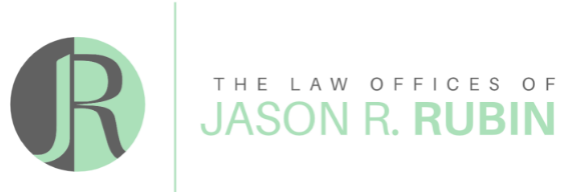Essential Information for Prospective Homeowners – An In-Depth Guide
Jason R. Rubin is an entrepreneur, real estate investor and real estate attorney based near Miami Florida. He specializes in handling complex real estate matters and advises investors on strategies that help mitigate risk and maximize returns. In addition, Jason serves as Chief Development Officer for Richr, a real estate PropTech/FinTech startup dedicated to creating a more streamlined, equitable, and all-inclusive real estate buying and selling experience. Mr. Rubin holds a Bachelor’s Degree in Business Administration from The George Washington University and also holds a Juris Doctor Degree from Nova Southeastern University’s School of Law.
Embarking on the journey of homeownership in South Florida is both exhilarating and complex. The mortgage process involves a series of intricate stages, each requiring attention to detail and due diligence. With fluctuations in interest rates and an ever-evolving market, it is critical to be well-informed and proactive when securing a mortgage and approaching the closing process.
This comprehensive guide will walk you through the essential steps leading up to and during the closing process, providing valuable insights and recommendations for achieving a successful outcome. In addition, we will delve into the importance of maintaining a strong credit score and understanding the various types of mortgage loans available in Florida.
Pre-Closing and Approval Process
A smooth and efficient pre-closing process is the foundation of a successful closing. Consider these steps to reduce stress and enhance your chances of obtaining a mortgage:
- Maintain Employment Stability: Lenders highly value financial and career stability; it’s best to avoid changing jobs or industries while applying for a mortgage.
- Determine Your Budget: Carefully evaluate your assets, income, expenses, and existing debts to ascertain your borrowing capacity and determine a reasonable home price range.
- Improve Your Credit Score: A higher credit score increases your chances of securing a mortgage with favorable terms. Pay bills on time, reduce outstanding debt, and avoid applying for new credit in the months leading up to your mortgage application.
- Research Lenders: Engage with multiple lenders, including affiliates, subsidiaries, and credit unions, to compare offers and identify the best fit for your financial situation.
- Understand Mortgage Types: Familiarize yourself with the various mortgage loan options available in Florida, such as conventional loans, FHA loans, VA loans, and USDA loans. Assess their eligibility criteria, down payment requirements, and interest rates to determine the most suitable option for you.
- Choose a Loan Type: Weigh the pros and cons of fixed-rate mortgages for predictable payments against adjustable-rate mortgages for potential interest rate benefits.
- Obtain Loan Estimates: Request loan estimates from prospective lenders, including an approximate loan total, monthly payment, interest rate, and associated fees.
- Secure a Pre-approval Letter: Obtain a pre-approval letter from your lender as evidence of your financial readiness, signaling credibility to the closing attorney and other transaction participants.
The Closing Process
Navigating the closing process involves several crucial steps:
- Home Inspection: Hire a professional inspector to thoroughly evaluate the property for structural issues, water damage, mechanical integrity, and electrical or HVAC concerns. This helps identify potential problems and negotiate repairs or price adjustments.
- Appoint a Closing Attorney: Retain a knowledgeable and experienced closing attorney to represent your interests, review contracts, negotiate terms, and handle other vital aspects of the transaction.
- Escrow: Utilize an escrow account managed by a neutral intermediary to securely hold funds and documents until closing, ensuring a transparent and organized process.
- Title Search: Have your real estate attorney conduct a comprehensive title search to identify any caveats, liens, or encumbrances on the property that may impact your ownership rights.
- Lock in a Mortgage Rate: Work closely with your chosen lender to finalize the mortgage rate, loan estimate, and loan agreement form, ensuring that all parties are on the same page.
- Obtain Title Insurance: Purchase title insurance to protect against unforeseen title defects, safeguarding your financial interests and providing peace of mind.
- Prepare for Closing Costs: Familiarize yourself with the various closing costs associated with your transaction, such as loan origination fees, appraisal fees, attorney fees, and title insurance costs. Allocate sufficient funds to cover these expenses, which typically range from 2-5% of the property’s purchase price.
- Conduct a Final Walkthrough: Before closing, perform a final walkthrough of the property to ensure all negotiated repairs have been completed and the property’s condition has not changed since the inspection.
- Review Closing Documents: Examine the closing disclosure, promissory note, deed of trust, and other closing documents thoroughly. Ensure all terms are accurate and aligned with your expectations. Consult your closing attorney if you have any questions or concerns.
- Closing Day: On the day of closing, bring your government-issued photo ID, a cashier’s check or wire transfer for the closing costs, and any additional required documents. Sign all necessary paperwork, and once the transaction is complete, you will receive the keys to your new home.
Post-Closing Considerations
- Update Your Address: Notify relevant parties, such as the post office, banks, credit card companies, and utility providers, of your change of address.
- Homeowners Insurance: Ensure that your homeowners insurance policy is active and provides adequate coverage for your property and possessions.
- Property Taxes: Familiarize yourself with your local property tax rates, deadlines, and payment options. Be prepared to cover these costs as a new homeowner.
- Maintenance and Repairs: As a homeowner, you are responsible for the upkeep and maintenance of your property. Set aside funds for routine maintenance, emergency repairs, and potential home improvement projects.
- Stay Informed: Keep abreast of local real estate trends, market conditions, and changes in local and state regulations that may impact your property or homeownership experience.
Conclusion
Closing on a Florida property marks a significant achievement in the journey of homeownership. However, it requires meticulous planning, attention to detail, and the guidance of experienced professionals. By following the steps outlined in this guide, understanding the various mortgage options, and seeking the assistance of skilled experts, you can ensure a smoother, more secure transaction.
Should you need help with the purchase process, closing, or selling a property, the team at the Law Offices of Jason R. Rubin is available to provide support and guidance. Based near Aventura, Jason Rubin and his team can help you embrace your new chapter as a homeowner with confidence and the assurance that you have made informed decisions throughout the process.



